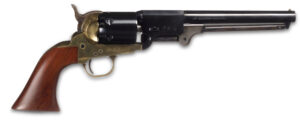When I was a 19-year-old secretary in a downtown Philadelphia office building during the 1970s, loud groups of war protesters in JFK Plaza made me mad. They had the right to free speech, but some anti-troop chants and signs were cruel. I prayed for my boyfriend Mike in the Army (1971-75), and my brothers Michael (Navy, 1970-74) and John (Marines, 1973- 75). One day I attended a POW/MIA rally and met a mother of a prisoner of war who inspired me to do something positive for the troops and become a Red Cross volunteer. After a training period, about 20 of us were prepared for our recreational duties at the Philadelphia Naval Hospital.
Every Monday night (and later, every holiday), I worked with two other “Gray Ladies,” so called by the Red Cross for the color of our uniforms prior to the mid- 1960s, when they were changed to blue. Dottie Hagdorn, Terry Kaiser and I became fast friends and were assigned to various wards in the hospital. The A wards held amputee patients, the B wards were for orthopedic patients and the T ward was for patients with psychiatric issues. Another ward held burn patients. Each ward held at least 50 men, my age or younger.
The first time I visited Ward 1A, I pushed through the door with a metal cart full of cookies and punch to serve the patients. Inside, one of the guys said my face looked like it would crack from its frozen, fearful expression. Another patient asked me if I needed a hand. Imagine my surprise when a gloved artificial hand splashed into the punchbowl in front of me, splattering red juice on my seersucker uniform. Everyone laughed—except me.
So here they were, the boys I had been taught to pray for every day at West Philadelphia Catholic Girls High School. “Pray for the boys in Vietnam,” the nuns would say. “Pray for the brother/father/ uncle/boyfriend of one of our students,” the principal intoned on the PA system most mornings. Pray, pray we were told, yet we knew little of what was really going on besides the news on TV. It all seemed a world away—until the Monday nights when I visited the wounded sailors and Marines.
There were various tricks. When four of us would play a game of 500 rummy, invariably a card would “drop” on the floor. It was always I who had to pick it up, and that’s when I would see the 20 or more artificial legs lined up underneath the table as a joke. They would laugh at my red face, and I began to laugh back. After a while, they treated me like a pesky little sister.
Once, my Red Cross supervisor sent me to an amputee ward with a dumb board game she created called, “Guess how many feet of string are glued to the poster?” Midway down the ward, a patient told me he was blind and couldn’t see the board. He asked if I would hold his hand to guide it on the board and sit a little closer to him on the bed (a definite Red Cross no-no). At the next bed, the patient claimed he was blind as well. Laughter erupted among the 50 of them, for they fooled me again. At the end of the game, the winner opened his wrapped prize to find a shoeshine kit. Only problem was, he had no legs. God bless him for laughing and assuring me that no matter what, one day he would need shoes for his legs.
Another night a patient told me there was a grease spot on the back of my uniform. When I said, “Here?” they said, “There,” and the next thing I knew, cold metal handcuffs clicked on my wrists behind me. Everyone claimed they didn’t know where the key was until I threatened to tell the corpsmen there was bootlegged beer in their Styrofoam water pitchers.
Patients were usually humble about their wounds, more worried about their brothers still in Vietnam. I watched them struggle to get out of bed or to turn over. Therapy exhausted them, and frustration was hard to keep at bay. When I arrived to find someone’s bed empty, I never asked. I just hoped he went home.
Every patient’s bed table held photos of family members. I’d see mothers smiling, girlfriends smiling, children smiling back at me and giving comfort to their loved ones in the quiet evening hours, saying “We’re here with you, get better.”
Despite what you read or heard about the war, people at home did care. Women from South Philadelphia made homemade cakes and cookies for Red Cross volunteers to serve. Hospital freezers were packed with goodies. Groups such as the Shriners and Jewish War Veterans put on shows and talked to patients in the lounge. Schoolchildren made cards. So many items were donated by good people to share with those far away from home.
My Red Cross uniform still hangs in my closet, a memory of the brave young men and dedicated volunteers I met.
Hannah Dougherty Campbell served at the Philadelphia Naval Hospital from 1970 to 1976. Retired from business, she is now a substitute teacher and freelance writer.
Originally published in the February 2015 issue of Vietnam. To subscribe, click here.




